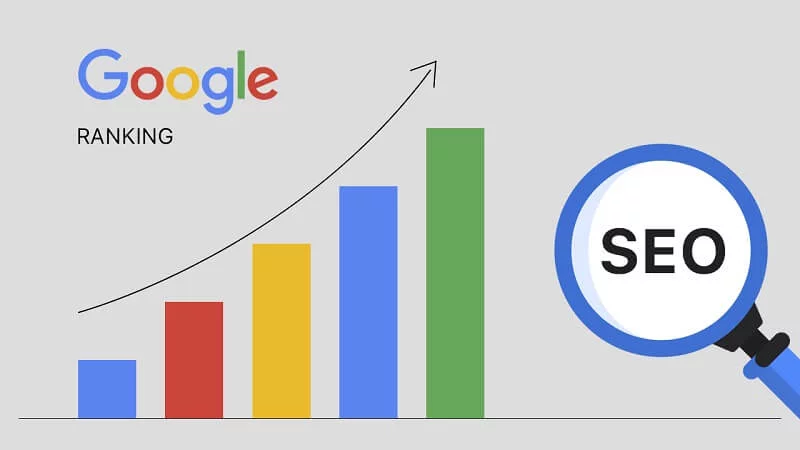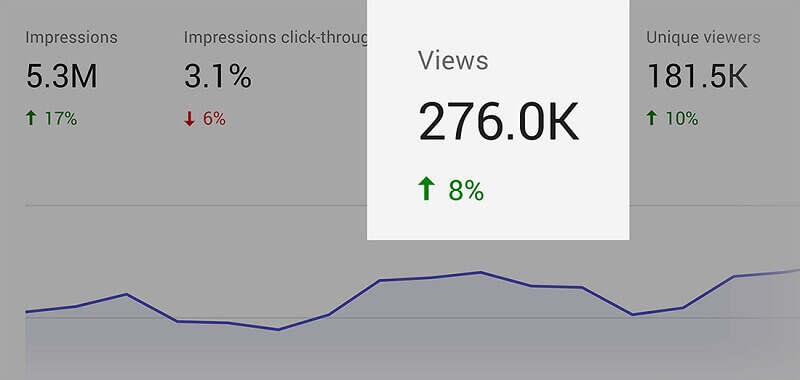Organic SEO refers to using unpaid, algorithm-driven methods to rank a website higher on search engine results pages. By optimizing your website with relevant content, spreading links pointing to the content, and incorporating metatags and other types of tag attributes, you can improve your website’s visibility and relevance in search engine results. Unlike paid listings, organic SEO is cost-effective and generates more trust among users due to the relevancy of the content offered. However, be careful not to use black hat SEO methods like keyword stuffing or link farming, which can lead to banning from search engines.
Organic SEO Techniques
There are various strategies that marketers use to boost website traffic through organic SEO. One of them is optimizing your website content using relevant and competitive keywords. By doing this, you can help ensure your webpage appears more frequently in search engine results pages (SERPs). Another effective technique is to focus on creating high-quality and engaging content that keeps readers engaged on the site for longer periods. Backlinks from other relevant sites can also be extremely valuable in improving rankings.
For instance, consider a website with a blog section. Through research, it could be found that their target audience often searches for content related to particular “long-tail” keywords relating to a specific product category. Using Google’s Keyword Planner or Ubersuggest, the site admin could optimize their blog posts with these specific terms, relevant H1 headings, meta descriptions, and content throughout the post.
Additionally, a site’s ranking factor is partially determined by how much time people spend browsing the site (known as Dwell Time). To keep visitors reading your site for longer, focus on creating high-quality, in-depth content that adds value to their experience rather than solely advertising or selling products or services.
Similar to how an expert garners their knowledge through years of dedicated study and research, it takes strategic planning and effort to effectively optimize and rank your webpage organically.
High-Quality Content Creation
Creating high-quality content is one of the pillars of organic SEO. The days of keyword stuffing and low-quality articles are long gone, and Google now prioritizes websites that offer valuable and relevant content to their users. To rank higher on Google search results pages (SERPs), you have to provide quality information that satisfies your visitors’ needs.
For instance, let’s imagine you’re a fitness instructor and your website aims to promote your services. You could create blog posts with useful workout routines, meal plans for different diets, or mental health tips that could benefit people interested in living a healthier lifestyle. Through such content, you’re demonstrating your knowledge and expertise regarding these topics while adding value to potential clients.
Moreover, when you put effort into crafting high-quality content, it leads to better engagement metrics such as longer dwell time, lower bounce rates, and increased social shares. These metrics send positive signals to search engines about the relevance and usefulness of your content, which improves your chances of ranking higher on SERPs.
Conversely, some argue that focusing too much on producing quality content might lead to neglecting other important aspects of SEO such as technical optimization or link building. However, if you consider that improving organic rankings takes time and sustained effort, why not dedicate yourself to providing top-notch content that will drive traffic organically rather than relying solely on paid advertising?
Building Relevant Backlinks
Backlinks play a crucial role in determining a website’s credibility and expertise on a particular topic or industry. Quality backlinks from relevant websites with high domain and page authority are more valuable than numerous low-quality ones. Unethical practices like buying backlinks or engaging in link schemes may result in penalties, therefore it’s essential to focus on outreach and engagement with reputable sites within your niche for valuable backlinks that will benefit organic search performance in the long term.
Google Ranking Factors for Organic SEO
Google algorithms are constantly evolving to provide users with the best possible search results. In this scenario, it is essential to have a clear understanding of the ranking factors that influence organic SEO. Effective optimization of these factors may lead to higher website traffic and visibility in search results. One critical aspect to consider when optimizing for organic SEO is selecting relevant keywords.
Keyword Research and Selection:
Selecting suitable keywords involves understanding the intent behind each user’s search query. The keywords need to be incorporated naturally into the content and must align with user intent. For example, if a user is searching for “best running shoes for men 2023”, your keyword strategy should aim to optimize around those specific long-tail keywords instead of generic keywords like “running shoes.”
High-Quality Content Creation:
The next crucial factor for organic SEO is high-quality content creation. It would help if you focused on building unique and informative content that provides value to the user. Google algorithms prioritize sites that add value to users’ searches and provide information that aligns with their queries.
Building Relevant Backlinks:
Backlinks refer to other relevant websites linking back to yours. While building a link profile, it’s imperative to ensure that the linking site is credible, trustworthy, and relevant according to your business niche.
Overcoming Organic SEO Challenges and Staying Updated:
The world of organic SEO can be challenging, and keeping up with the factors driving it is mandatory to achieve effective results. It’s important to think of staying updated with Google’s algorithmic updates as swimming against the current in a river; while swimming upstream feels tough, it is necessary to keep moving forward.
Mobile Usability and Page Speed
Mobile usability and page speed remain among Google’s top-ranking factors as mobile devices gain more use throughout society. A responsive website design that looks great on a mobile device, fast website loading times, and optimized images all contribute to a higher ranking in Google search results.
Mobile Usability:
A mobile-responsive website allows users to access your site easily from any device without compromising the user interface’s quality. Users are more likely to stay on sites that are easy to navigate on all devices, driving up engagement rates.
Page Speed:
The speed of your website can make or break your user experience. A slow-loading page can drive customers away from your site and impact your organic SEO performance as well. Google suggests aiming for a loading time of fewer than 3 seconds, and this standard drives in higher rankings on search engine result pages.
Balancing Image Quality and Load Times:
It’s important to note that using high-quality images can be detrimental to page speed if not optimized correctly. Compressing images, properly defining image sizes, minifying CSS and JavaScript files, and using a Content Delivery Network (CDN) are some of the common practices used by website owners to ensure optimal page speed and image optimization.
What strategies can be used to improve organic SEO rankings?
There are several strategies that can be used to improve organic SEO rankings. One important strategy is keyword research and optimization. By targeting the right keywords and including them in various elements of your website, such as meta tags, headings, and content, you can signal to search engines what your website is about and increase its relevance.
Another effective approach is content creation and promotion. Developing high-quality, original content that provides value to your target audience can help attract backlinks from other websites and social media shares. These signals positively impact your website’s authority, which is a crucial factor in determining search engine rankings.
Additionally, optimizing your website’s technical aspects, such as loading speed and mobile responsiveness, can improve user experience and signal to search engines that your website is trustworthy and reliable. This can indirectly positively impact your rankings.
Overall, these strategies require consistent effort and a long-term perspective. A HubSpot study found that websites with 16+ blog posts per month received nearly 3.5 times as much traffic as those with zero to four posts per month. So investing in ongoing optimization efforts will yield the best results in organic SEO rankings over time.
How is organic SEO different from other types of SEO?
Organic SEO, also known as natural or unpaid search engine optimization, is the process of optimizing a website’s content and structure to improve its visibility on search engine results pages (SERPs) without resorting to paid advertising. Unlike other types of SEO, organic SEO focuses on long-term strategies that increase the website’s authority and relevance over time.
One of the main differences between organic SEO and paid SEO is cost. Paid SEO requires businesses to pay for advertising space to appear on SERPs or social media platforms. In contrast, organic SEO relies solely on improving the quality and relevance of website content, which can drive more traffic and generate leads without shelling out a fortune.
Another key difference is sustainability. Paid advertising can provide instant visibility, but it’s only a short-term solution. Once the advertising budget runs out, the business’s online presence disappears instantly. Organic SEO takes longer to show results initially but has long-term impacts because it builds a lasting online reputation and brand authority over time.
According to recent studies, organic search traffic still drives the majority of web traffic globally. According to BrightEdge research data from 2020 shows that organic search accounts for more than 53% of website traffic across industries, compared with paid search’s mere 15%. That means that organic SEO techniques should not be overlooked if you want to drive long-term sustainable results.
In summary, while different SEO approaches have their strengths and value in specific scenarios, Organic SEO provides sustainable growth in terms of brand authority and cost-effectiveness over other methods like Paid SEO.
Interesting Related Article: What Is An SEO Specialist?









